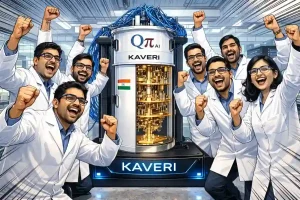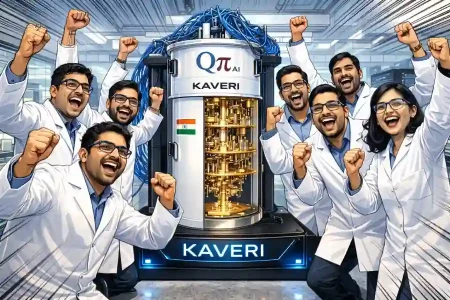For the two-odd decades, every marketer in the world has only had one objective: making Google love you…
SEO (search engine optimisation) has been the holy grail for a very long time — a predictable, measurable way of earning visibility, capturing intent, and translating attention into revenue. In fact, the entire content economy was designed and built around that equation. However, it was in 2025 that the equation finally showed cracks, when we could evaluate, research, and even transact inside AI (artificial intelligence) tools like Perplexity or ChatGPT — without even visiting our websites — and the rules of discovery were finally being rewritten.
Today, we’re officially in the GEO (Generative Engine Optimisation) era, where users influence how LLMs (large language models) cite, recall, and recommend their brands in AI-generated answers. ‘Tis the season for GEO, indeed.

The ABCs Of Search Optimisation
Terms like SEO, GEO, AEO (Answer Engine Optimisation), AIO (AI Optimisation), and LLMO (Large Language Model Optimisation) have exploded in interest. If you’re thinking that GEO is just SEO with a different name, you’re not entirely wrong; in many ways, it actually is. SEO was first, prioritising how to show up on search engines for driving traffic to your site.
Even subcategories like AIO and LLMO (structuring and publishing content for LLMs to accurately retrieve, summarise, and cite it) have flooded the field. Then, the bigwigs AEO and GEO emerged, with GEO having gained substantial traction. Finally, the umbrella term for all these emerging fields is AI SEO (AI SEO), which basically refers to optimising digital content so it can be unearthed, understood, and cited by AI-powered search systems.
Despite the presence of multiple terminologies, there’s a reason why everyone’s been talking about it — because they reflect a real shift. Search terminology has always been an evolving concept, but every acronym shares a single goal — helping people find and understand answers and making content discoverable and useful.
We aren’t saying that GEO is replacing SEO; rather, it’s helping users reframe their strategies for how discovery works now — across social platforms, AI tools, and new arenas that traditional search cannot reach. This is true notwithstanding which platforms users search on, and it boils down to optimising for how people consume answers and how they search.

The Rise Of GEO
GEO is the practice of creating and optimising content for it to appear in AI-generated answers on platforms such as Perplexity, ChatGPT, AI Mode, and Google AI Overviews. However, GEO is a holistic approach that goes beyond content optimisation; these tools or generative engines “generate” responses to questions in conversational language.
It also includes earning positive brand mentions across the internet, even without direct links, publishing content in all the right places where AI tools are the likeliest to discover it, and ensuring that AI crawlers can easily access and understand the content with technical accessibility. So, GEO makes sure that your brand becomes part of what AI tools display when users ask questions, instead of simply focusing solely on traditional rankings.
Overall, GEO’s objective is to have the content shape the conversation, and not just try to win clicks. So, in many ways, GEO is less of a brand-new invention and more of the next phase of SEO. In fact, many GEO consultants come from the world of SEO, with at least some of the old strategies still applicable as the core objective remains the same: anticipating the questions users will ask and making sure that your content appears in the answers.

Why Does GEO Matter Now?
Generative engines are influencing the audience more than ever now. As of November 2025, ChatGPT has 800 million weekly active users, up from 400 million in February 2025! In fact, ChatGPT reached 100 million users quicker than any other application in history. Even Google’s AI Overviews now appear across at least 13% of all SERPs (search engine results pages) and on billions of searches every month. Again, just because we’re talking about GEO doesn’t mean that traditional Google search doesn’t matter anymore.
If anything, it still dominates and will likely continue to drive most of the traffic in the short term.
However, there’s no doubt that the way that users discover information is changing — and fast. Earlier, success used to mean ranking at the top of the SERPs. Going forward, though, there might not even be a “top spot;” instead, one might need to become the “top recommendation” — a solution that AI tools are now choosing to recommend in their answers.
Basically, GEO isn’t going to rely on clicks as currency, but will rather focus on optimising content to be cited, featured, and referenced in AI-generated answers pulled from users’ websites.

A Zero-Click Future
As LLMs begin to change how users notice and discover brands and make decisions, GEO will help ensure that your brand and your content show up in AI-generated answers, and not just in traditional search results. However, GEO is just one part of a bigger shift, and we’ve already entered the era of “Search Everywhere.”
Discovery isn’t confined to just Google SERPs any longer; it’s happening everywhere. In the end, if your brand isn’t adapting to GEO, you will be invisible online.
In case you missed:
- Will AI Be the End of Web Searches?
- Is Generative AI Spinning a New World Wide Web?
- Google AI Is Quoting YouTube Videos For Health And Medical Queries. Should We Be Worried?
- All About India’s Indigenous AI LLM Models – Can They Help Tackle Bias?
- All About AI Prompt Injection Attacks
- Hiding In The Dark: Navigating The Threat Of Shadow AI
- The Cloud Cost Conundrum: Is Cloud FinOps the Answer?
- AI And The Supply Chain: Reshaping The Logistical Network
- The Next Phase of AI: Deep Research
- The Rise and Evolution Of Honeypots In Cybersecurity









